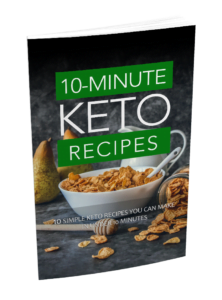
Vitamins are compounds found in food, which help us to be fit and healthy.
These organic compounds help in the functioning of the various metabolic systems of our body.
Vitamins are found naturally in the various foods, which we consume and we can also obtain vitamins in the form of vitamin supplements.
Vitamins also help to protect our body from diseases and infections.
Vitamins are also essential for the formation of various enzymes and hormones of the body which control the metabolic activities such as digestion, circulation excretion etc.
There are about eleven types of vitamins, which are essential for the human body.
Vitamin A is essential for the proper functioning of our eye and it also acts as an anti oxidant preventing certain oxidizing chemical reactions, which cause harm to our body.
Vitamin A can be obtained from green leafy vegetables, broccoli, carrot, sweet potatoes, pumpkin, papaya etc.
The B group vitamins include thiamin, riboflavin, niacin, folic acid, cyanocobalamin and biotin.
These are essential for the proper functioning of our nervous system and for the conversion of food in to energy by the body.
It is also essential for the proper functioning of various metabolic activities of our body.
Vitamin B is available from whole grains, beans, fish, lean meat, fruits and vegetables, dry fruits, nuts, milk, egg, soy beans, etc.
Vitamin B-12 can be obtained only from animal sources such as liver, egg, meat, cheeses etc.
B group vitamins are essential for the amino acid metabolism, nitrogen metabolism, and for the healthy skin.
Vitamin C can be obtained from citrus fruits such as lemon, sweet lime, oranges, grapes, grapefruit etc.
Vitamin C is essential for the prevention of diseases and infection. It also helps in the absorption of iron.
Vitamin D can be obtained from sunlight. It is essential for the bones and teeth. It is also needed for the growth of our body.
Vitamin E is an essential antioxidant. It can be obtained from whole grains, asparagus, wheat germ, corn, green leafy vegetables and seeds.
If you do not take a proper nutritious diet then you may suffer from vitamin deficiency health problems.
Lack of Vitamin A can cause problems related to eyesight such as night blindness.
Insufficient Vitamin B can cause diseases like Beriberi, Anemia, poor resistance to diseases, etc.
Lack of Vitamin C causes gum bleeding, weakness, loss of appetite, tiredness etc.
Insufficient vitamin D causes deformation of bones and teeth.
Deficiency of vitamins in food leads to poor health. An effective way of filling the nutritional gaps due to poor eating habits is the use of vitamin supplements.
These vitamin supplements can help us to boost our immune system and to build up stamina.
It is always better to take vitamins as a whole from food sources rather than synthetic vitamins.
Taking synthetic vitamins is more like taking half vitamin and our body treats natural and synthetic vitamin differently.
It is very essential to provide our body with natural nutrients for protecting various organs and body functions.
Our body needs whole vitamins, which are found naturally in the foods such as grains, vegetables and fruits rather than vitamin supplements.
Our body utilizes the natural vitamin more efficiently than the synthetic vitamin.
Millions of people take daily vitamin supplements to encourage good health.
With all the different kinds of vitamins, minerals and herbs flooding the market these days, it’s sometimes difficult to know what to choose.
The first thing you need to know is that vitamin supplements are not a replacement for eating healthy, vitamin rich whole foods.
Food contains the nutrients your body needs in their very purest form, and interact with each other and your body in a way supplements cannot.
However, taking vitamin supplements in addition to eating a vitamin-rich diet can be a great way to stay healthy and protect against damage from harmful free radicals.
When shopping for vitamin supplements, there are a few things you should keep in mind:
Always read the label
Reading labels is a wise practice you should do every time you shop for supplements.
Labels can tell you more about dosages, ingredients, safety precautions, and other important information.
Choose a reputable manufacturer
Always choose products with “USP” on the label.
“USP” is the abbreviation for the U.S. Pharmacopeia and the inclusion on the label means the product has been tested and checked for quality and safety.
Check the Date
Expired vitamins can lose their potency. Always make sure there is an expiration date printed on the bottle, and never purchase or use expired supplements.
Avoid Giant Doses
Do not choose supplements that offer extremely high doses of a particular vitamin or vitamins. Too much of anything can be harmful, sometimes even fatal.
Store Safely
Always keep your vitamins out of the reach of children. Store in a cool, dark, dry place as heat and humidity can affect the integrity of the vitamins.
Always Do Your Homework
Research is always a good idea before deciding to take vitamin supplements. Consult with your doctor. Perform some Internet searches or visit your local library.
There is a wealth of resources available for you on the topic of vitamin supplements and the benefits they offer.
Why bother taking vitamins at all? Our forefathers survived just fine without multi vitamin packs, why can’t we?
The answer to that question is easy, go look in your cupboards. Our forefathers ate a lot better than we do.
High processed, homogenized, pasteurized, canned and prepackaged fast food means less chance of natural occurring vitamins surviving for any length of time.
While some of us pick our own fruit and grow our own vegetables, most of the country chooses to rely on packaged, store bought fruits and veggies.
These aren’t as healthy as they look, either.
The longer the apples and tomatoes are off the vine, the faster they begin to lose their nutritional value, losing vitamins during processing and shipping.
Your body needs vitamins to boost your immune system, ward off colds and other viruses, and even keep you even tempered, so to speak.
Did you know with a vitamin deficiency that you are less likely to clot when you cut yourself?
Vitamins play a much bigger part then we think, and the average diet does not include all the vitamins necessary to keep the body in top shape.
A good multi-vitamin is your best choice, but here again you can be misled into believing that 100% of the USDA recommended dosage is good enough.
They mean 100% total, not 100% of each vitamin necessary.
Think about it, they can’t possibly pack the right amount of every kind of vitamin that you need into one pill a day, and most multi vitamins sold in your local grocery store are cut with fillers and preservatives.
Nope, you’ll have to visit your local food co op and get some natural, all inclusive vitamin supplements.
Along with eating well, these supplements contain everything you need for balanced vitamin intake, with none of the fillers and preservatives that I, for one, resent paying for.
So let’s talk B vitamins as an example. You need several different kinds of B vitamins alone. B6 and B12 are just two, but the most commonly talked about.
Vitamin B6 promotes the development of red blood cells, and 12 helps promote energy and fights Alzheimer’s disease.
You need these and other vitamins to be in the purest form possible in order to be the most beneficial. Let’s skip back for a moment, the history of vitamins, if you will.
Vitamins began being “discovered” by scientists and surgeons around 1914, and the word “vitamin ” comes from the word “vital” as in vital energy for life, but as far back as the 1600’s sailors knew to eat citrus fruits to prevent scurvy.
It wasn’t until later that they knew it as vitamin C.
Now we will skip forward to the future. Many vitamins are now available as liquids. Remember cod liver oil?
Well now most vitamins can be taken from a spoon rather than choked down (although if you were one of the kids forced to down cod liver oil, you were choking anyway), what’s more, they taste good now as well.
Now before you get all excited and run out to stock up on each vitamin that you are deficient in, let me remind you that you can, in fact, ‘overdose’ on vitamins, kind of.
The water soluble vitamins such as B’s and C’s will simply be expressed through your urine if you’ve taken in more than your body needs, but fat soluble vitamins such as D and E can accumulate and cause problems such as diarrhea, nausea, vomiting, and rash.
I recommend contacting a homeopath to test for vitamin deficiencies before you run out and spend a lot on vitamins.
Knowing exactly what you need the most and in what daily dosage will save you some money, because again, you really need to purchase each vitamin separately, rather than in a multi-vitamin pill.
DISCLAIMER: This information is not presented by a medical practitioner and is for educational and informational purposes only.
The content is not intended to be a substitute for professional medical advice, diagnosis, or treatment.
Always seek the advice of your physician or other qualified health care provider with any questions you may have regarding a medical condition.
Never disregard professional medical advice or delay in seeking it because of something you have read.
Since natural and/or dietary supplements are not FDA approved they must be accompanied by a two-part disclaimer on the product label: that the statement has not been evaluated by FDA and that the product is not intended to “diagnose, treat, cure or prevent any disease.”





